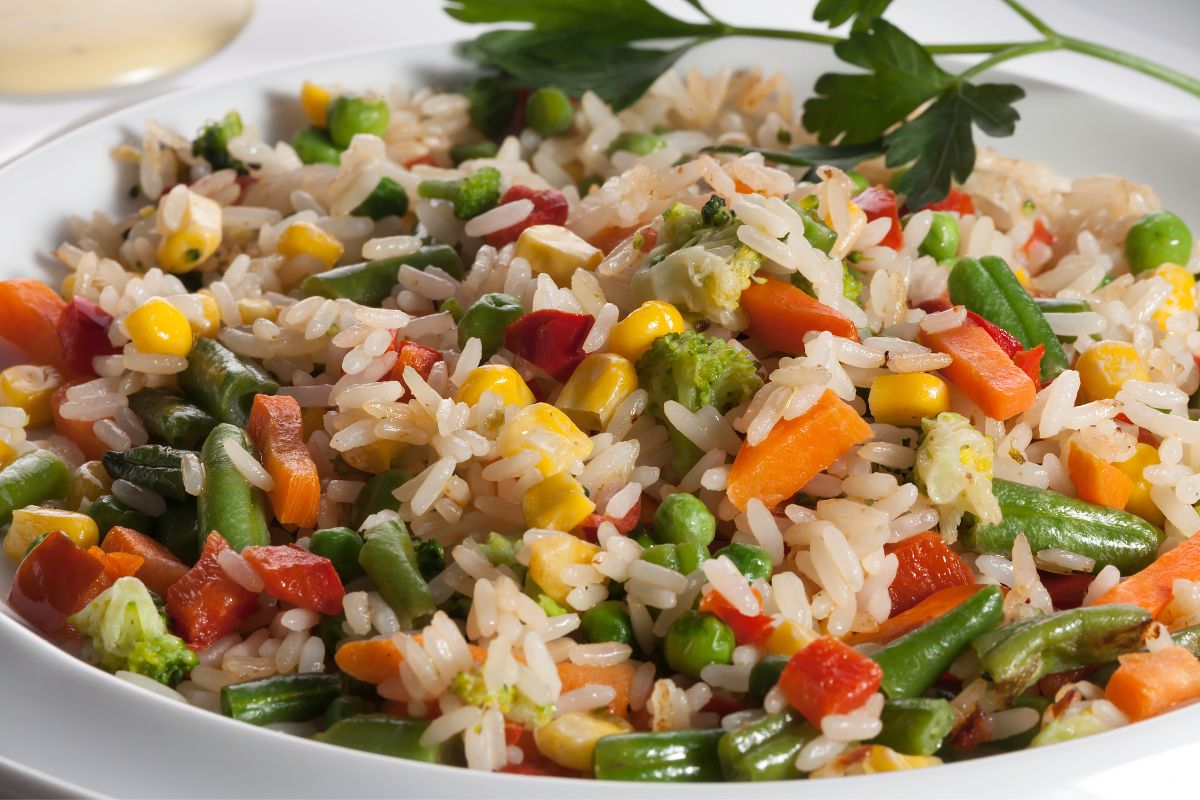For well over 10,000 years, rice has been a staple in our diets. It is one of the most common grains in the world and is a vital source of fiber and carbohydrates that bodies need for energy and growth.
However, over time it has become more common for humans to enjoy white rice. This has seen some seriously negative effects on the human population across the world. Many people switch to brown rice in order to reverse the effects of white rice.
But is brown rice good for weight loss? In this article, we discuss everything you need to know about brown rice and its effects on weight loss. It is known that brown rice is less processed and holds more nutrients giving it many beneficial health benefits.
Let’s get into it!
How Nutritious Is Brown Rice?
Much like any other grain, brown rice is an extremely simple ingredient. With a little work it can be really tasty for a range of meals. And it is extremely nutritious. When it is compared to white rice, brown rice is a marvel in the grain world.
One cup of brown rice has the nutritional value of:
- Calories: 216
- Fiber: 3.5 grams
- Protein: 5 grams
- Fat: 1.8 grams
- Carbs: 44 grams
Brown rice is extremely dense in other nutrients such as folate, potassium, and calcium.
Brown rice also has a very high manganese content. This little-known mineral is essential for several crucial bodily functions, including neuron function, blood sugar management, muscle contraction, bone growth, and wound healing.
Now, it is important to mention that brown rice does have the same calorific volume as white rice. This is important when you are considering brown rice as part of your diet for weight loss.
Health Benefits of Brown Rice
Being such a nutritious grain, there are many health benefits to including brown rice in your diet.
Reduces Risk Of Diabetes
Due to brown rice’s low glycemic index (GI), you won’t experience a surge in blood sugar after eating it. According to studies, consuming three servings of whole grains each day, such as brown rice, can cut your risk of type 2 diabetes by up to 32%.
However, it is paramount that brown rice is consumed as part of a balanced diet. Having too much can lead to weight gain and other health complications.
Better Heart Health
Numerous nutrients found in brown rice support heart health. It has a lot of dietary fiber, which lowers the risk of heart disease death. Additionally, brown rice has a lot of magnesium, which can lessen your risk of stroke and heart disease.
Studies have shown that including brown rice in your diet can reduce the risk of heart disease by 22% and lower your risk of stroke by over 10%. This is incredible!
Weight Control
Adding a portion of brown rice to your daily diet may have the ability to help you control your weight. If you are someone who has severe weight fluctuations, brown rice can help you manage it better.
Additionally, brown rice has more dietary fiber than white rice. Foods with more fiber let you feel satiated for longer while consuming fewer calories. You can eat less food without being more hungry if you swap out white rice for brown rice.
Anti-Inflammatory Properties
Brown rice is extremely rich in anti-inflammatory and antioxidant properties. These properties can help treat a range of health conditions including asthma and arthritis.
It can also help with digestion which can reduce bloating in the stomach. An issue which many people face and confuse with weight gain.
Disadvantages Of Consuming Brown Rice
While there are many advantages to including brown rice in your diet, there are also some disadvantages to be considered.
Contains Phytic Acid
Brown rice and other grains naturally contain phytic acid. This is stored in the outer bran layers that are left untouched when grain is unprocessed.
While this nutrient does have some benefits, it is extremely hard for humans to digest it as we lack the phytase enzyme needed to break it down.
This can prevent the body from absorbing other vital nutrients such as iron, calcium, and zinc. This is especially harmful to those who follow a more plant based diet as the body is not getting these minerals and nutrients from other food sources.
Should You Eat Brown Rice For Weight Loss?

When enjoyed as part of a balanced diet, brown rice can help you lose some excess weight. This does not mean that consuming only brown rice will help you lose weight, you must ensure to be consuming enough of other vital nutrients such as protein and healthy fats.
It is important to know how much brown rice you should be consuming in order to remain in a calorie deficit when losing weight. You can eat as many grains as you want but without a calorie deficit, you may never see the results you want.
Remember that only a half-cup of cooked rice constitutes one serving of brown rice. You can make a full cup of cooked brown rice from a half-cup of dry brown rice, and you can receive even more if you order a side of rice at your preferred restaurant. Take care to only consume that half-cup serving.
How To Cook Brown Rice
As brown rice is not as processed as white rice, the cooking process is a little different. Many people struggle to get the right texture but we are here to help!
- Wash your rice in cold water until the water runs clear. This removes any extra starch and dust that may have been collected during the harvesting process.
- Place the rice into a pot with 1 ½ cups of water for every cup of uncooked brown rice.
- Slowly bring the water to a bowl on the stove.
- Once boiling, reduce the heat to low and cover the pot with a lid or aluminum foil.
- Allow the rice to simmer for 20 minutes before removing it from the heat.
- Leave the cover on for a further 10 minutes before stirring and serving.
Final Thoughts
Brown rice is a great, whole-grain food to add to your diet. Especially if you are working to lose weight. When part of a healthy balanced diet, brown rice has incredible benefits for your entire body and overall health.
While it may not be as delicious as white rice, with some seasoning and flavorings it can be a delicious side dish for a range of your favorite meals.
So, add brown rice to your diet and watch your body thank you in many different ways!
Frequently Asked Questions
Basmati is a type of white rice, however, it is slightly healthier than long-grain white rice. Basmati rice is a food with a moderate to medium glycemic index, falling between 50 and 58. Small servings of basmati rice can be a part of a healthy diet if you have diabetes.
The lowest glycaemic index of any rice type is found in wholegrain Basmati rice, which indicates that once digested, it releases its energy gradually and helps to stabilize blood sugar levels, an important aspect of managing diabetes.








